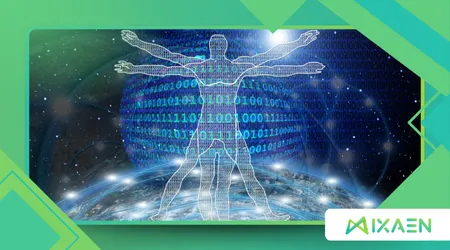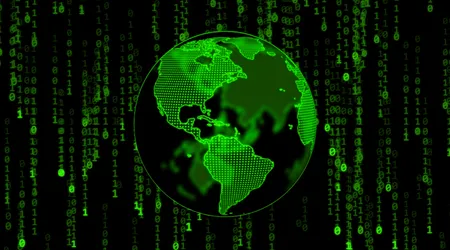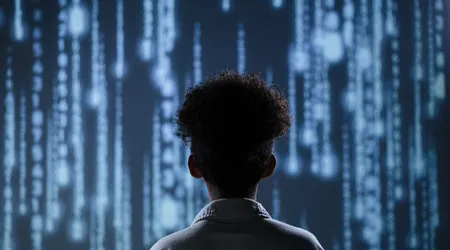The Simulation Hypothesis: Are We Living in a Digital Universe?

The Simulation Hypothesis has captivated philosophers, scientists, and tech enthusiasts alike, proposing that our reality might be an intricate digital construct.
Anúncios
This provocative idea, once relegated to the realms of science fiction, has gained traction in recent years, fueled by advancements in technology and theoretical physics.
But could we truly be living in a simulated universe?
And if so, what would that mean for our understanding of existence, free will, and the nature of reality itself?
As we delve deeper into this hypothesis, we uncover layers of complexity that challenge our perceptions of life and the universe.
The implications of a simulated reality could redefine our understanding of consciousness and existence, leading to profound philosophical inquiries.
Origins of the Simulation Hypothesis
The concept of the Simulation Hypothesis isn’t new.
Its roots trace back to ancient philosophers like Plato, who pondered the nature of reality in his Allegory of the Cave.
Fast forward to the 21st century, and the idea has been revitalized by thinkers like Nick Bostrom, a philosopher at Oxford University.
In his seminal 2003 paper, Bostrom argued that at least one of the following statements is likely true:
- The human species is very likely to go extinct before reaching a “posthuman” stage.
- Any posthuman civilization is extremely unlikely to run simulations of their ancestors.
- We are almost certainly living in a simulation.
Bostrom’s trilemma has become a cornerstone of the Simulation Hypothesis, sparking debates across disciplines.
His arguments have prompted many to reconsider the nature of reality and the future of humanity.
But what evidence, if any, supports this mind-bending theory?
The exploration of simulation theory has led to interdisciplinary discussions, merging philosophy, computer science, and physics in unprecedented ways.
The Case for a Simulated Reality
Proponents of the Simulation Hypothesis often point to the rapid advancement of technology as a key indicator.
Consider the exponential growth of computing power, virtual reality, and artificial intelligence.
Today, we can create immersive digital worlds that blur the line between reality and illusion.
Games like The Sims or VR environments like Meta’s Horizon Worlds offer glimpses into how future civilizations might craft entire universes.
If technology continues to evolve at this pace, it’s not far-fetched to imagine a society capable of simulating conscious beings.
This potential raises questions about the ethical implications of creating and interacting with such beings.
Moreover, some physicists argue that the fundamental laws of the universe bear striking similarities to computer code.
For instance, the universe operates on quantized units of energy and time, much like a digital system.
This has led some to speculate that our reality might be built on a computational framework, akin to a cosmic computer program.
Such comparisons challenge our understanding of physics and the underlying principles of the universe.
The Counterarguments: Why Skeptics Doubt
Despite its allure, the Simulation Hypothesis faces significant criticism.
One major objection is the sheer computational power required to simulate an entire universe.
Even with quantum computing, the energy and resources needed would be astronomical.
Critics also argue that the hypothesis is unfalsifiable—meaning it cannot be proven or disproven—making it more of a philosophical musing than a scientific theory.
This poses a challenge for those who seek empirical evidence to support or refute the idea.
Another point of contention is the “why” behind such a simulation.
If we are living in a digital construct, who created it, and for what purpose?
Some suggest it could be an ancestor simulation run by a future civilization, while others propose it might be an experiment or even a form of entertainment.
Without concrete evidence, these questions remain speculative.
The motivations behind creating a simulation could reflect deeper philosophical inquiries into existence and purpose.
+ Could our universe be a simulation?

Testing the Simulation Hypothesis
Interestingly, some scientists have attempted to test the Simulation Hypothesis.
One approach involves looking for “glitches” or anomalies in the fabric of reality that might indicate a simulated environment.
For example, physicists have searched for patterns in cosmic rays or irregularities in the behavior of particles that could suggest a computational framework.
So far, no definitive evidence has been found, but the search continues.
The ongoing research highlights the intersection of science and philosophy, as researchers grapple with complex questions about existence.
Another intriguing idea comes from quantum mechanics.
The double-slit experiment, which shows that particles behave differently when observed, has led some to speculate that the universe might be rendering reality only when necessary—much like a video game loads graphics as the player moves through the world.
While this interpretation is controversial, it highlights the creative ways researchers are exploring the hypothesis.
These explorations could lead to new insights into the nature of reality and consciousness itself.
The Philosophical Implications
If the Simulation Hypothesis were proven true, it would fundamentally alter our understanding of existence.
Questions about free will, morality, and the meaning of life would take on new dimensions.
Are our choices truly our own, or are they predetermined by the code of the simulation?
Would our actions hold the same weight if they occurred within a digital construct?
This challenges the very essence of human agency and accountability.
On a more existential level, the hypothesis challenges our perception of reality.
If our world is a simulation, what lies beyond it?
Are there multiple layers of simulations, like a Russian nesting doll?
And if so, how deep does the rabbit hole go?
These considerations prompt us to reflect on the nature of existence and our place within it.
The Cultural Impact of the Simulation Hypothesis
The Simulation Hypothesis has permeated popular culture, inspiring movies like The Matrix, Inception, and Ready Player One.
These films explore the idea of simulated realities, often with dystopian undertones.
But beyond entertainment, the hypothesis has also influenced fields like ethics, theology, and even politics.
For instance, if we are living in a simulation, should we prioritize the well-being of our digital selves, or focus on uncovering the “true” reality?
This question raises ethical dilemmas about the treatment of sentient beings, whether real or simulated.

++ Star formation at the edges of galaxies.
A Data-Driven Perspective
To better understand the Simulation Hypothesis, let’s examine some key data points:
| Aspect | Simulation Hypothesis | Traditional View |
|---|---|---|
| Nature of Reality | Digital Construct | Physical Universe |
| Computational Framework | Likely | Unlikely |
| Evidence | Speculative | Empirical |
| Philosophical Impact | High | Moderate |
This table highlights the stark contrasts between the simulation theory and traditional views of reality.
While the hypothesis offers a compelling narrative, it remains largely speculative.
The data-driven approach encourages critical thinking and analysis, prompting further exploration of the hypothesis.
The Role of Consciousness
One of the most perplexing aspects of the Simulation Hypothesis is the role of consciousness.
If our minds are part of a simulation, does that mean consciousness itself is a product of code?
Or is it something more profound, transcending the digital realm?
This question bridges the gap between science and philosophy, challenging us to rethink what it means to be human.
The implications of consciousness within a simulated framework could reshape our understanding of identity and self-awareness.
The Future of the Simulation Debate
As technology continues to advance, the Simulation Hypothesis will likely remain a topic of intense debate.
Innovations in quantum computing, AI, and virtual reality could bring us closer to creating our own simulations, offering insights into the plausibility of the theory.
Meanwhile, ongoing research in physics and cosmology may uncover new clues about the nature of reality.
As we progress, the lines between digital and physical realities may blur further, raising new questions about existence.
Conclusion: A Thought Experiment or a Glimpse of Truth?
The Simulation Hypothesis is more than just a sci-fi trope—it’s a profound thought experiment that challenges our understanding of existence.
While the evidence remains inconclusive, the idea forces us to confront fundamental questions about reality, consciousness, and our place in the universe.
Whether we are living in a digital construct or a physical world, the journey to uncover the truth is as fascinating as the destination.
As we continue to explore the boundaries of science and philosophy, the Simulation Hypothesis serves as a reminder that reality is often stranger—and more complex—than we can imagine.
So, the next time you look at the stars or ponder the mysteries of existence, ask yourself: Are we the creators, or are we the code?
This inquiry invites us to explore the depths of our understanding and the nature of our reality.
